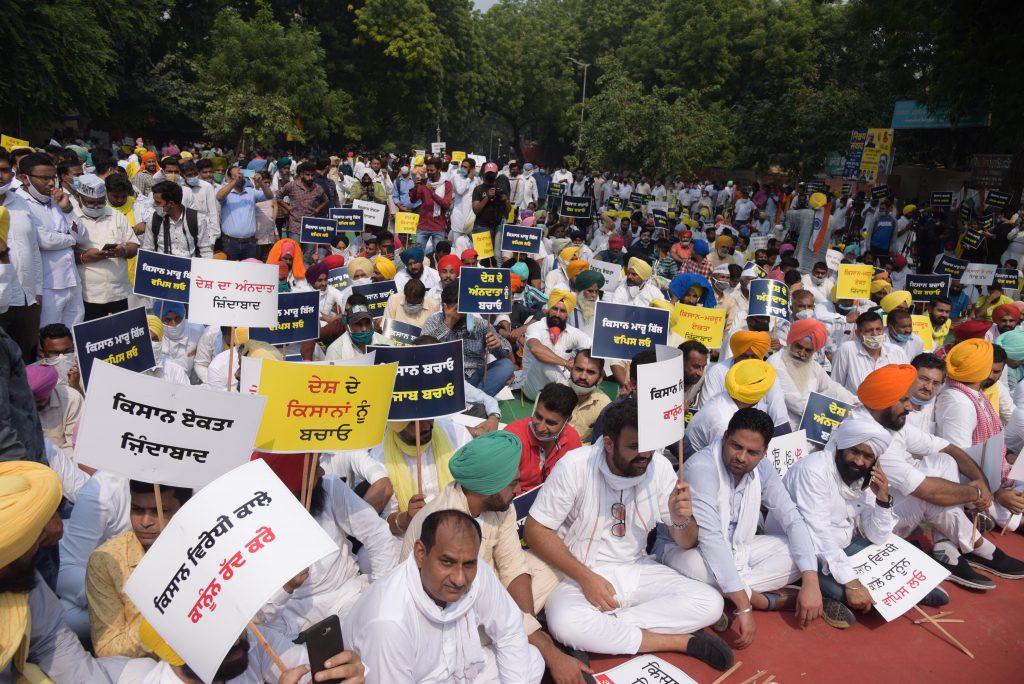The farmers’ protests are showing no signs of abating. Four weeks into the agitation, the Centre and the agitating farmers have failed to find a meeting ground. Both the sides are adamant in their respective stand. In this backdrop, the suggestion of the Supreme Court that the Centre put in abeyance the implementation of the three contentious farm laws makes eminent sense. Earlier, the court has suggested formation of a committee comprising representatives of all the stakeholders including farmer unions, their supporters, the government and other political parties to suggest measures to find an amicable solution to the festering crisis. Unfortunately, this proposal did not find resonance with the protesters; in good measure the Centre also continued to show intransigence. That both sides are hardening their stance is not a good sign.
The apex court has acknowledged the farmers’ right to hold non-violent protests. In no less strong terms, the top court also rooted for the fundamental rights of common people to move freely. The Supreme Court has been broadly sympathetic to the farmers’ cause. The Centre, on its part, has demonstrated its intent to sympathetically handle the issue. However, most of its posturing is rhetoric only. It has been consistently refusing to revisit the three divisive laws—a one point demand of farmers. They have declared that nothing short of a complete withdrawal of the three farm laws will satisfy them. The government seems to be in no mood to review the divisive laws. Farmers are out sitting in the cold. There have been suicides over this issue. A priest in Punjab committed suicide purporting his support for the farmers. The situation continues to be highly volatile and delicate. The apex court’s intervention offers a window of opportunity to end this impasse.
The government should show magnanimity and accept the Supreme Court’s proposal that it will not push ahead with the laws. Heavens will not fall if implementation of the laws is kept in abeyance for some time. In the meantime, the Centre should strive to bring various stakeholders round to its stand. There are sections of farmers in the country, especially from south and eastern India who may be open for discussions. Pending a resolution of the crisis, senior leaders in the government should restrain themselves from making aggressive pitch against the farmers. In the past three weeks, such irresponsible statements by senior party leaders have further alienated the farmers. Both the parties should eschew obduracy. Both should adopt an accommodative stance over the issue. Ego and one-upmanship should not be allowed to scupper the pitch of discussions. The government should take the first step. It must tone down the rhetoric and invest itself in talks. No reforms can be shoved down the throats of people for whom they have been designed. The government should either win their confidence on the proposed reforms or put it on hold till the end-users come on board. The government must jettison its policy of my way or highway. The farmers on their part also should not play themselves into the hands of political parties who see nothing but political opportunism in the problem. This way the agitation will lose its sanctity, making the job easy for the government. Both the government and the farmer unions should adopt a policy of give and take. Things should not be seen in a defeat or victory binary.
